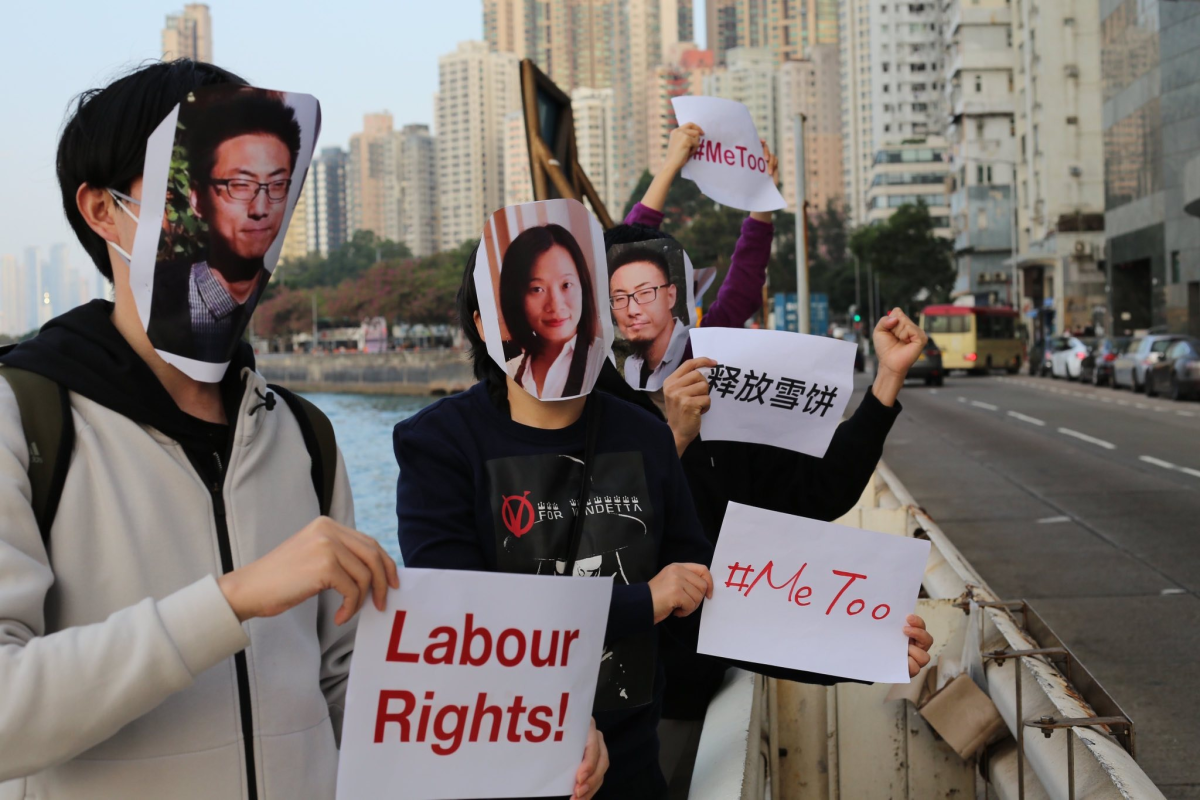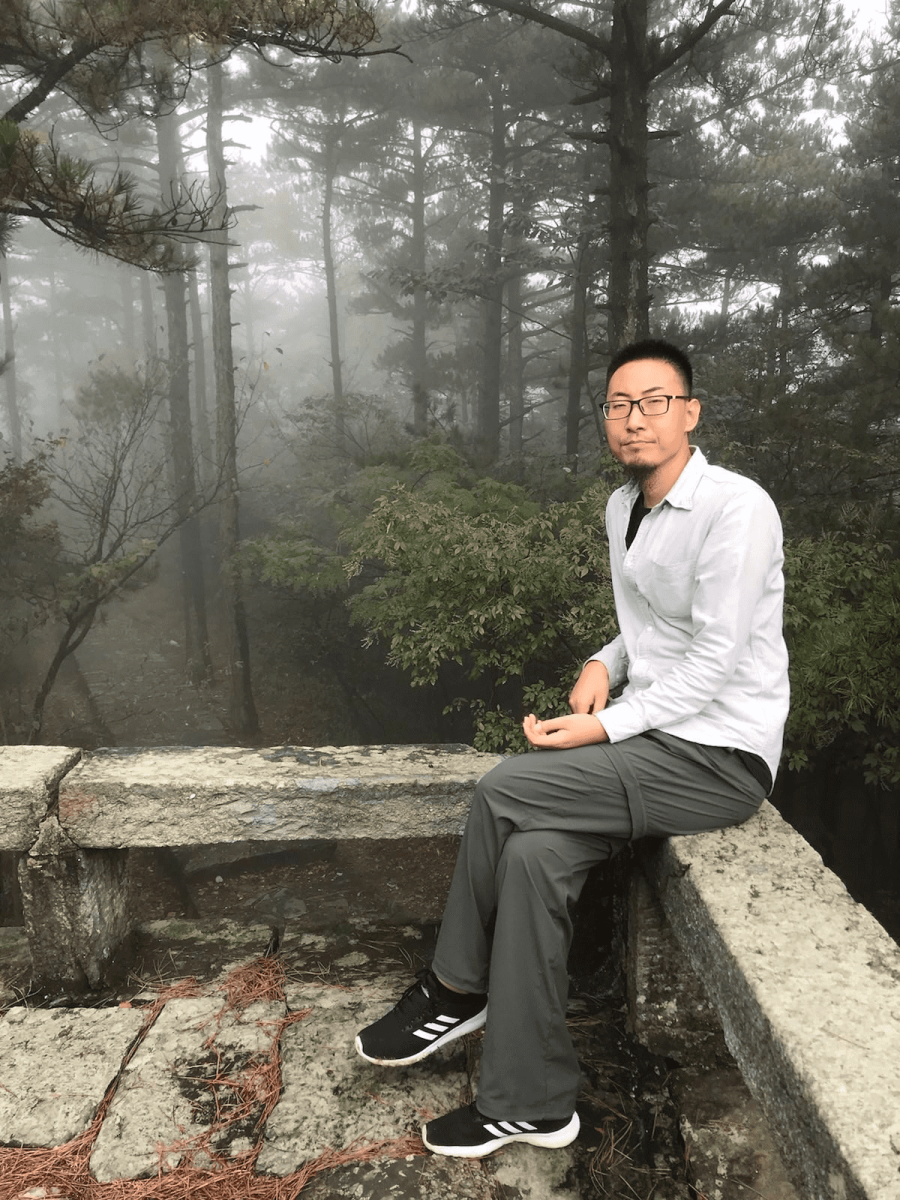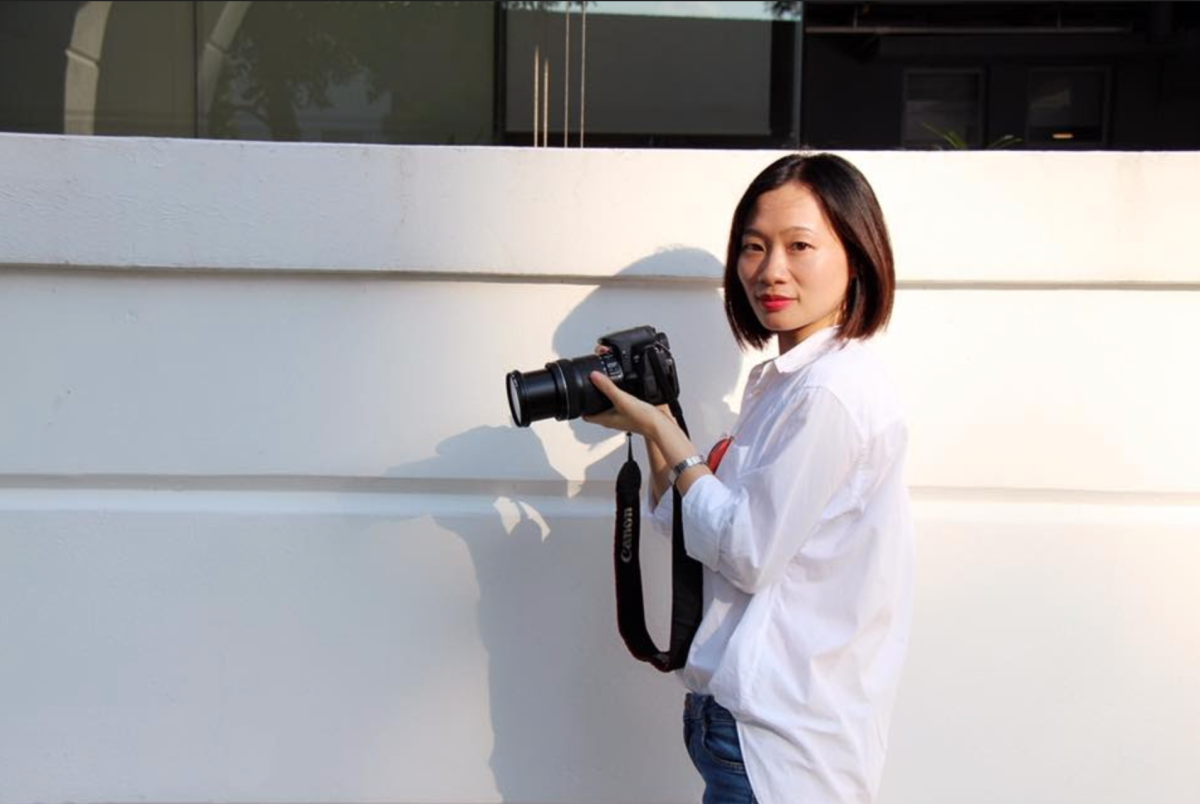Journalist Jessie Lau* writes for CLB on the activists’ disappearance and their respective work promoting and defending labour rights in China.
It’s been a year since labour activist Wang Jianbing and #MeToo journalist Sophia Huang Xueqin disappeared into state detention. Although most details about their cases remain unclear, according to information from their friends, Wang’s case has now been sent to court, after having been returned to the police for a second investigation. Huang’s case has also been sent to court and the two are expected to face trial at an unknown date.

Supporters hold a small demonstration in Hong Kong. Photo: Free Huang Xueqin and Wang Jianbing Github page.
The pair attended weekly social gatherings at Wang’s apartment in Guangzhou before “disappearing” on 19 September 2021, losing contact with loved ones while making their way to the airport. Huang was travelling to the United Kingdom to pursue gender studies at the University of Sussex through a British government-funded Chevening scholarship, and Wang was accompanying her for part of the way.
After weeks of no news, police confirmed their detention to their families, who were later notified that they are each accused of “inciting subversion of state power.” The charge could lead to a maximum sentence of fifteen years in prison.
Wang is a labour and disability rights defender who has spent more than sixteen years working in China’s non-profit sphere. He began his career as an advocate for youth education and rural development after graduating from university in 2005. He joined the NGO Guangzhou Gongmin as a youth work director and coordinator in 2014 and was a strong supporter of China’s #MeToo movement.

Wang Jianbing. Photo: Free Huang Xueqin and Wang Jianbing Github page.
Wang is more recently known for his role in advocating for workers’ health and safety. Since 2018, he helped provide legal and community support to workers who had contracted illnesses due to poor working conditions.
During the pandemic, he met with workers who had contracted the lung disease pneumoconiosis, according to Rachel (a pseudonym), a friend of Wang’s and Huang’s who previously worked at an NGO in Guangzhou. “He struggled to find work and had little money, but he still wanted to help these workers,” Rachel told CLB.
Huang also made significant contributions to advancement of labour rights through her journalism, which exposed the prevalence of sexual harassment and violence in workplaces in China. In 2017, she conducted a landmark survey with over 400 participants, revealing that over 80 percent of female journalists have experienced sexual harassment at work, and over 57 percent chose to remain silent.
Huang herself is a survivor of workplace sexual assault. During a business trip, a colleague grabbed her and kissed her without her consent. “I was so angry that I kicked him,” Huang told the South China Morning Post. “This is such a serious problem, but why is it so quiet here?”

Sophia Huang Xueqin. Photo: Free Huang Xueqin and Wang Jianbing Github page.
Speaking out about the violence she experienced at work, Huang kick-started the nation’s #MeToo movement. Huang went on to report on some of the country’s most high-profile sexual assault cases and continued to advocate for the implementation of policies to combat sexual harassment. Huang also has written on the 2019 protests in Hong Kong, for which she spent three months in detention and was never charged.
Huang has received numerous awards for her journalism and her work advancing women’s rights, including for her profile of feminist and labour rights defender Li Qiaochu, who now stands accused of inciting subversion of state power after speaking out on behalf of her partner, Xu Zhiyong, a legal activist facing trial on the same charge.
“Huang’s and Wang’s cases reveal how these [civil society] spaces are becoming so tightly controlled,” Rachel told CLB. “Five years ago, we were able to criticise the government and publish opinion pieces in the newspaper. Now, even sharing thoughts with friends over food and drinks can be labelled as a crime.”
Since the pair’s arrest, at least 70 friends who attended Wang’s gatherings, many of whom are advocates in the civil society space, have since been questioned by police. Some were reportedly forced to sign false statements providing evidence against Huang and Wang, who were initially held in secret “residential surveillance at a designated location” (RSDL) without charge before being transferred to detention centres in Guangzhou.
Wang spent five months in solitary confinement where he was subjected to regular interrogations that led to a deterioration in his health, according to friends.
At present, Huang’s condition remains unknown, even to friends and family. In early April, Huang and her family hired lawyer Wan Miaoyan to defend her in this case. Wan is a friend of Huang’s and was her lawyer when she was detained the first time in 2019. Yet on 16 April, Wan was notified that Huang had dismissed her.
Wan’s requests for an appointment with Huang to confirm this change were allegedly denied by authorities, who cited pandemic reasons. Now, Huang has been assigned a government-appointed lawyer, and there has been no further news on the status of her case.
“It feels like we’re in a black box. We’ve tried so hard to find information about her, and it’s been extremely difficult,” Rachel said, adding that she and other activists will continue to advocate for the pair’s release.
“In China, there are many people like her and (Wang) Jianbing who are quietly sacrificing. I ask people to pay attention to them,” said Rachel.
Along with over two dozen civil society organizations, CLB calls for the immediate release of Wang and Huang, and, until then, for their legal cases to be handled in compliance with all relevant domestic and international laws.
*Jessie Lau is a journalist covering human rights, politics and culture through a global feminist perspective. She tweets @_laujessie
